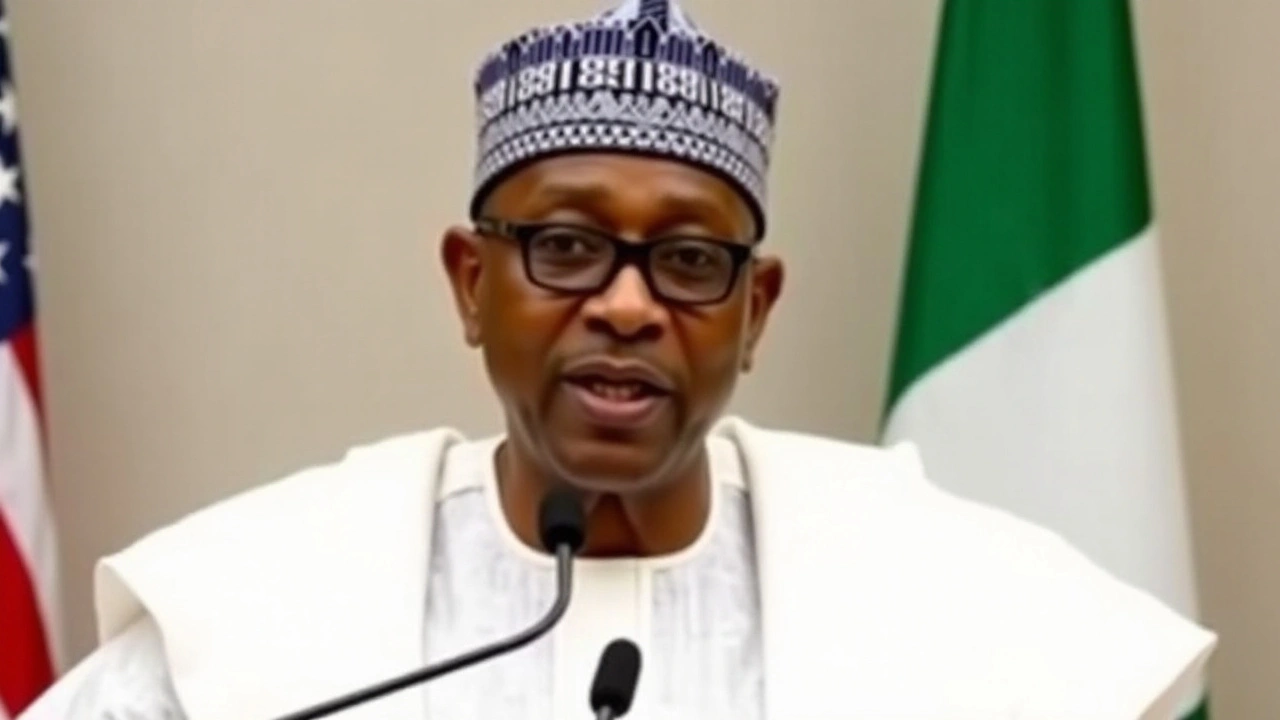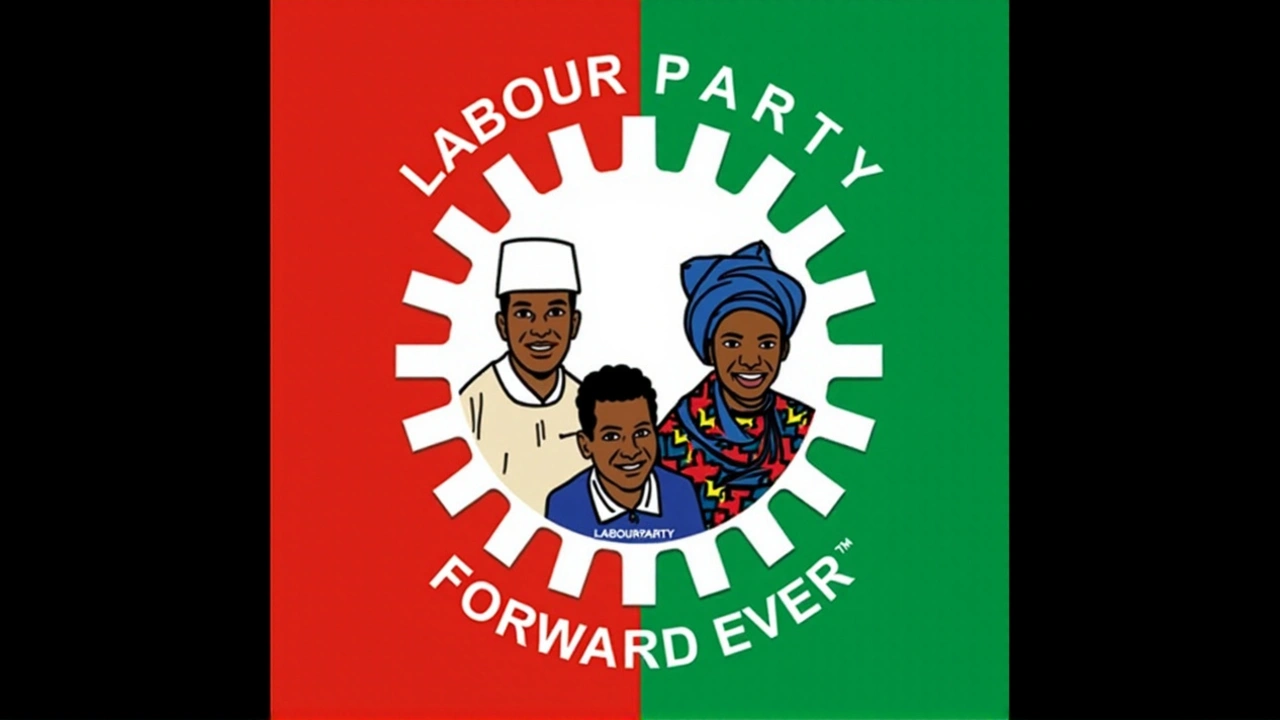Tinubu Approves NNPC's Use of Dividends for Fuel Subsidies Amid N68 Trillion Expenditure
In a significant move aimed at addressing Nigeria's ongoing economic challenges, President Bola Tinubu has approved the Nigerian National Petroleum Company Limited's (NNPC) request to use its dividends to pay for fuel subsidies. This decision comes at a critical time when the country is grappling with the financial weight of these subsidies, which have consumed an estimated N68 trillion since the inception of the current administration.
The NNPC had sought approval to utilize its share of dividends from its profits to cover the ever-growing costs associated with fuel subsidies. These subsidies have been a topic of extensive debate, given their substantial impact on the nation's budget. With President Tinubu's approval, the NNPC can now allocate its dividends towards this pressing financial need, highlighting the desperate efforts to manage the economic strain posed by these payments.
A Burden on the National Budget
Fuel subsidies have long been a financial burden on Nigeria, stretching the country's budgetary resources thin. The continuous rise in global oil prices, coupled with fluctuating exchange rates, has exacerbated the situation, making it increasingly difficult for the government to sustain these subsidies. The N68 trillion expenditure highlights the enormity of the challenge, prompting the need for innovative solutions.
The decision to leverage NNPC's dividends is seen as a strategic maneuver to alleviate some of the financial strain on the government. This move not only ensures the continuation of fuel subsidies for the populace but also offers a temporary reprieve for the national budget. However, it does not come without its challenges and criticisms, as some stakeholders question the long-term sustainability of this approach.
The Economic Impact
The economic impact of fuel subsidies in Nigeria is multifaceted. On one hand, they help to stabilize fuel prices, making them more affordable for the average Nigerian. This is particularly important in a country where many citizens rely on fuel for transportation, electricity generation, and other daily needs. On the other hand, the financial burden of sustaining these subsidies has limited the government's ability to invest in other critical sectors such as healthcare, education, and infrastructure.
By using the NNPC's dividends, the government hopes to strike a balance between maintaining fuel price stability and freeing up resources for other essential areas. This decision underscores the complexity of managing an economy that is heavily dependent on oil revenues, yet plagued by financial inefficiencies and corruption.
A Temporary Solution?
While the approval to use NNPC's dividends provides immediate relief, it raises questions about the long-term sustainability of fuel subsidies in Nigeria. Critics argue that relying on dividends is a short-term fix that does not address the underlying issues driving the high cost of subsidies. They advocate for a more comprehensive approach that includes reforming the subsidy regime and tackling inefficiencies within the petroleum sector.
Moreover, there are concerns about the transparency and accountability of how these dividends will be utilized. Ensuring that the funds are used effectively and judiciously will be crucial in maintaining public trust and achieving the desired economic outcomes.
The Way Forward
As Nigeria navigates this complex economic landscape, the need for innovative financial solutions becomes ever more apparent. The approval to use NNPC's dividends represents a step towards addressing the immediate financial challenges posed by fuel subsidies, but it is not a panacea. Sustainable economic growth will require a multifaceted approach that includes policy reforms, increased efficiency, and transparent governance.
In the coming months, it will be important to monitor the effectiveness of this strategy and its impact on the broader economy. The government will need to remain agile and open to further adjustments to ensure that the benefits of fuel subsidies can be maintained without compromising other critical areas of national development.
In summary, President Tinubu's approval of the NNPC's request marks a significant development in Nigeria's ongoing efforts to manage the financial burden of fuel subsidies. While this move offers temporary relief, the long-term sustainability of such subsidies will depend on broader economic reforms and prudent management of the country's resources.









Naveen Kumar Lokanatha
August 20, 2024 AT 02:56 AMIt is evident that the government is attempting to grapple with the fiscal strain caused by fuel subsidies, however the reliance on dividend allocations may only provide a temporary fix. While the intention appears commendable, the execution must be scrutinised to ensure transparency and efficiency. Additionally, stakeholders should consider alternative revenue streams that could alleviate the burden without compromising essential services. The policy's long‑term impact remains uncertain, and continuous monitoring will be vital to assess its effectiveness
Alastair Moreton
August 30, 2024 AT 08:40 AMWow, NNPC is finally getting a chance to cash in on its own profits – what a groundbreaking innovation! I guess we should all clap for this “genius” move while the real issues keep piling up. Such a brilliant fix, truly the hallmark of visionary leadership. No doubt this will solve everything overnight
Surya Shrestha
September 9, 2024 AT 18:40 PMOne must, indeed, contemplate the macro‑economic ramifications of diverting dividend proceeds toward subsidy financing, for such a maneuver, while ostensibly pragmatic, presupposes a level of fiscal dexterity that is, regrettably, seldom observed in practice; consequently, the policy, albeit innovative, may engender unforeseen externalities that warrant rigorous analytical scrutiny, lest the sovereign wealth be inadvertently eroded
Rahul kumar
September 20, 2024 AT 04:40 AMHey folks, this is a real eye‑opener! Using NNPC dividends to keep fuel cheap is a bold step but we gotta ask: is it sustainable? The gov should also look at cutting waste and boosting local refineries – that could save more cash in the long run. Plus, transparency is key – let people see where every naira goes so trust can grow. Keep pushing for reforms, we can make it work together
mary oconnell
September 30, 2024 AT 14:40 PMIn the grand tapestry of fiscal orchestration, the decision to siphon dividends into subsidy coffers is, at best, a micro‑cosmic illustration of systemic path dependency – a veritable echo chamber of legacy economics that perpetuates the status quo. One might argue that the realignment of capital flows, while superficially pragmatic, merely reifies entrenched inefficiencies, thereby obfuscating the deeper structural maladies afflicting the polity
Michael Laffitte
October 11, 2024 AT 00:40 AMWell, that's just classic politics.
sahil jain
October 21, 2024 AT 10:40 AMGuys, this move could be the spark we needed to reignite confidence in the economy – if handled right, it’s a chance to prove that Nigeria can innovate under pressure. Let’s keep the momentum going and demand accountability every step of the way!
Bruce Moncrieff
October 31, 2024 AT 19:40 PMAbsolutely, sahil! The real test will be how transparent the fund allocation becomes – we need clear reporting, otherwise the optimism could quickly turn into disappointment. Keep the conversation alive, keep the pressure on the officials to deliver real results
Dee Boyd
November 11, 2024 AT 05:40 AMIt is morally indefensible for any government to prioritize subsidizing fuel over fundamental services such as healthcare and education. This policy reflects a misplaced hierarchy of values that undermines societal well‑being and perpetuates systemic inequities.
Carol Wild
November 21, 2024 AT 15:40 PMWhile one may be inclined to vilify the administration’s approach as merely a symptom of bureaucratic inertia, a deeper excavation reveals a labyrinth of covert alliances and shadowy financial machinations that extend far beyond the surface‑level fiscal discourse. The convergence of entrenched interests, opaque contractual arrangements, and clandestine lobbying efforts coalesce into a formidable edifice that perpetuates the subsidy quagmire, thereby ensuring that the populace remains entrapped within a cycle of dependency orchestrated by unseen power brokers operating behind the veil of ostensibly legitimate governance frameworks; consequently, any superficial critique falls woefully short of addressing the insidious undercurrents that truly sustain this fiscal folly
Rahul Sharma
December 2, 2024 AT 01:40 AMThe allocation of NNPC dividends toward fuel subsidies, while ostensibly a stopgap measure, raises several pivotal considerations that merit rigorous examination; first, the macroeconomic impact of diverting dividend revenue, which could otherwise be invested in critical infrastructure, must be quantified with precision, as the opportunity cost is substantial; second, the governance mechanisms overseeing the disbursement of these funds require transparent reporting protocols, to preclude misallocation and to foster public trust; third, historical precedents within the Sub‑Saharan context illustrate that similar subsidy financing schemes often exacerbate fiscal deficits, thereby undermining long‑term fiscal sustainability; fourth, the volatility of global oil prices introduces an additional layer of risk, as fluctuations may erode the expected dividend stream, leaving the subsidy program vulnerable to shortfalls; fifth, stakeholder engagement, encompassing civil society, industry experts, and the broader citizenry, is essential to ensure that policy design aligns with socio‑economic priorities; sixth, an in‑depth cost‑benefit analysis should juxtapose the immediate consumer relief against the potential stunting of diversification efforts within the energy sector; seventh, the legal framework governing dividend allocation must be scrutinized to verify compliance with statutory mandates, thereby averting potential judicial challenges; eighth, the fiscal multipliers associated with reduced fuel costs, while positive in the short term, may be offset by diminished fiscal space for health, education, and infrastructure investments; ninth, the precedent set by this decision could engender expectations of perpetual subsidy financing, complicating future fiscal reforms; tenth, institutional capacity within NNPC to manage and audit the redirected funds is a critical determinant of efficacy; eleventh, the role of the Central Bank in monitoring macro‑economic stability must be coordinated with this policy to mitigate inflationary pressures; twelfth, leveraging technology for real‑time monitoring and public disclosure can enhance accountability; thirteenth, comparative case studies from countries that have successfully transitioned away from fuel subsidies offer valuable lessons; fourteenth, the political calculus underlying this move suggests a short‑term appeasement strategy, which may not be sustainable; fifteenth, continuous monitoring and adaptive policy mechanisms are indispensable to respond to emerging fiscal realities; and finally, a holistic reform agenda that addresses underlying inefficiencies in the petroleum sector, while concurrently redefining the subsidy framework, will be paramount to achieving lasting economic resilience.
Emily Kadanec
December 12, 2024 AT 11:40 AMHonestly, the whole thing is just a classic case of short‑term thinking, and if you look at the numbers, it’s pretty clear that this won’t solve anything in the long run.
william wijaya
January 2, 2025 AT 01:56 AMIt’s heartbreaking to see citizens bear the brunt of policy missteps, especially when the promised relief feels fleeting; we must champion policies that prioritize human development over fleeting fiscal tricks.